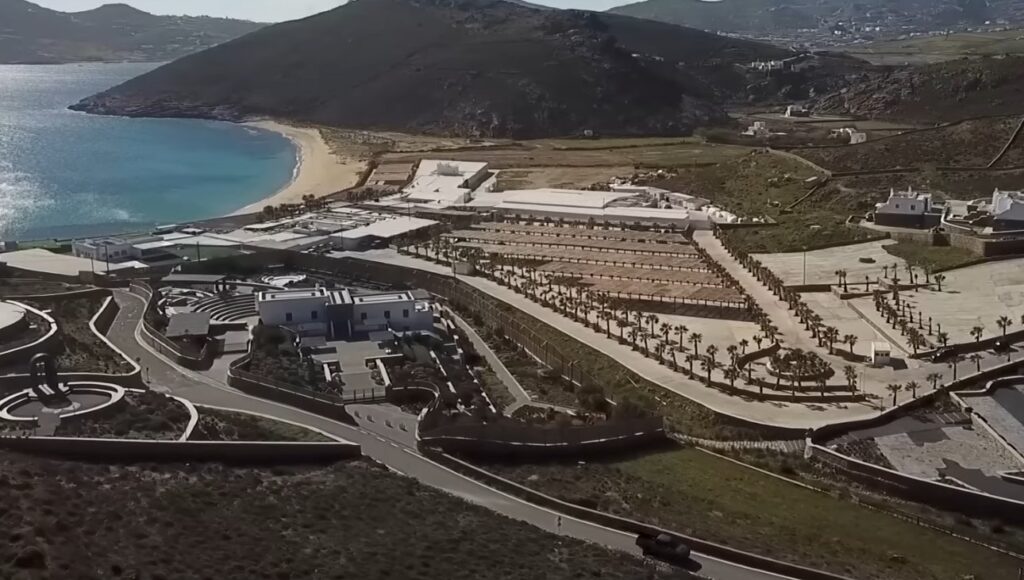The tale of two stories, both nearly 100 years apart, and both are being celebrated today. One is considered a national hero in Greece for helping in the liberation struggle from Ottoman slavery, while the other is remembered as the Turkish genocider of over two million Greeks, Armenians and Assyrians.
George Karaiskakis was born in 1780 in Mavromati in Central Greece. At the age of 15, Karaiskakis left his adoptive parents and became a bandit. Three years later he fell into the hands of Ali Pasha of Ioannina, who, appreciating his strong character, hired him in his bodyguard. In the Court of Ioannina he not only learned warfare, but also reading and writing.
At the outbreak of the Greek War of Independence in 1821, it did not take long for him to break from Ali Pasha and on January 15, 1823, Karaiskakis scored his first major victory against the Turks at the Battle of Sovolakos. In the middle of 1823 he was promoted to general and became known for his fiery speeches that would motivate and encourage those under his command.
In July 1826 he was appointed general of Roumeli, with full jurisdiction. His first action was to relieve the besieged of the Acropolis of Athens. On August 6, he defeated the Turks in Haidari and repeated his victory two days later.
Although seriously ill, he campaigned in Dombraina in October to cut off supplies to the besieged Kioutachis. He would clear the area and on November 24, 1826, would achieve a grand victory over the Turks in Arachova, in a multi-day battle that would demonstrate his strategic capabilities. For the Turks it was the second great disaster after Dervenakia.
He scored two great victories, in Keratsini (March 4) and in the monastery of Agios Spyridon (April 13).
On this day in 1827, he succumbed to a bullet shot he received while fighting in Battle of Phaleron. He was buried at the church of Saint Dimitrios on the island of Salamis as he had wished. He became embedded as a known figure in the struggle for Greece’s independence and is immortalised, most famously as the name of the stadium that Olympiakos FC play out of.
However, on the other side of the Aegean in Turkey, another figure is also celebrated on this day. Today, Turkey celebrates the 100th anniversary of the foundation of its Grand National Assembly or parliament, established by “founding father,” Mustafa Kemal Atatürk (“Father Turk”), an Albanian Jew born in Thessaloniki. His father died when he was young and his mother worked in a brothel – but despite this early setback, he came to be known as one of the biggest mass murderers in recent history.
While Turkey celebrates the 100th year of its parliament and remember Atatürk for this, the rest of the world remembers his responsibility for killing millions of Greeks, Armenians and Assyrians to create a “Turkey for the Turks.” Those who were not exterminated or expelled by Atatürk during the First World War and up to 1923, were then violently “Turkified” and Islamised to become Turks.
Atatürk with humble beginnings rose through the military ranks and was the main factor in preventing the complete collapse of the Ottoman Empire, or what later came to be known as the Turkish Republic, during World War One and the following Greco-Turkish War. However, the violent mass extermination of non-Muslim populations in Turkey is not well known in Turkey as it is omitted from the education system, while those who speak about it are arrested.
The push for Turkification was so strong that for over 50 years school children had to recite “Ne mutlu Türküm diyene!” or “How happy is the one who says I am a Turk!”
The veil of Turkey’s genocide crime is now being exposed in a documentary, as reported by Greek City Times.
So as we remember Karaiskaki for his martyrdom to ensure that Greece became a free and sovereign country from the Ottoman Empire, we also pay respect to the East Thracian, Asia Minor and Pontic Greeks who were mass exterminated by the Ottoman and Nationalist Turks as Turkey today celebrates the foundation of its parliament.
Source: Greek City Times


